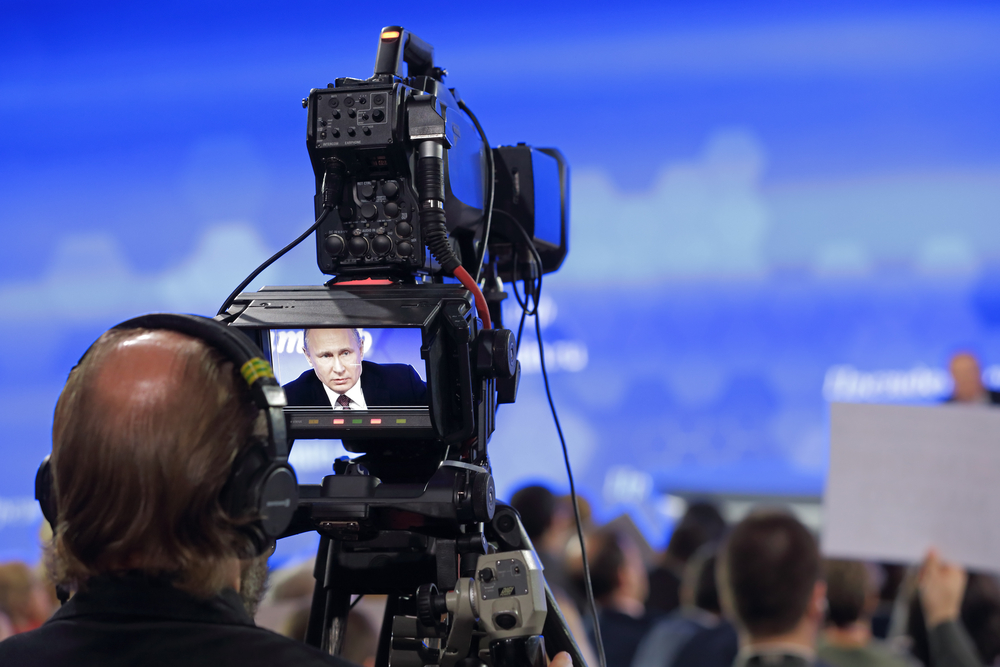Days after its full-scale invasion of Ukraine on February 24, 2022, Russia adopted repressive legislation at full speed, aiming to criminalize any independent reporting or social media mentions of the war. Just over a year later, Russian lawmakers tightened these laws even further. On March 15, the State Duma, the lower house of parliament, adopted even more restrictive legislation in a third and final reading. IPI condemns Russia’s latest efforts to build a parallel reality inside the country by silencing independent media and critical voices.
The new legislation adopted by the Russian parliament on March 15 expands the list of entities it will be illegal to “discredit”. Aside from the regular Russian military, this will now include all Russian officials abroad, as well as all military units which “contribute to carrying out the tasks attributed to the Russian Armed Forces”, according to the bill’s text as quoted by MediaZona, an independent Russian online media. This would include, for instance, members of Wagner and other private military companies deployed by Russia in its war in Ukraine. Unsurprisingly, these legal changes were first proposed by the leader of Wagner, pro-Kremlin businessman Yevgeni Prigozhin.
Once enacted, the law will also increase penalties for those found guilty of “discrediting” Russian officials or publishing “fake news” about the war, with the maximum sentence foreseen by articles 207.3.1 and 280.3.1 of the Russian criminal code increasing from three to five years of prison. The length of possible sentences is not the only aspect the bill will change, explained Pavel Chikov, a lawyer and head of the Russian human rights group Agora: “This lets [authorities] arrest suspects and increases the limitation period [for breaches] to six years”, he said.
“This law is the latest step in Russia’s efforts to build a parallel reality inside the country by silencing independent reporting on the truth of Russia’s war on Ukraine”, said IPI Deputy Director Scott Griffen. “Legislation on ‘fake news’ and ‘discreditation’ of the army has already been wielded as a weapon against the free press and other critical voices. One year after Russia’s mass crackdown on the press in relation to the war began, the government is cracking down further.”
“Fake news” and “discreditation” laws are not the only weapon used by authorities to silence independent journalism in Russia. Close to 200 websites have been blocked by Roskomnadzor, the country’s internet regulator and censor, according to IPI monitoring. Meduza, Russia’s most popular independent news website, was also recently declared an “undesirable organization”, which in practice makes all of its operations within Russia illegal.



